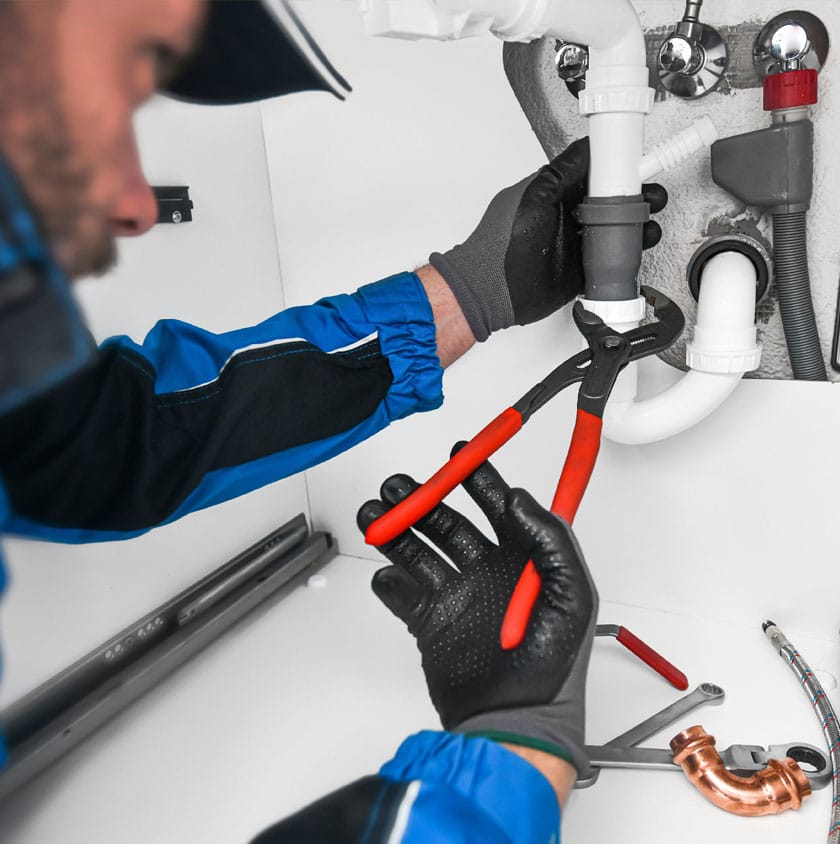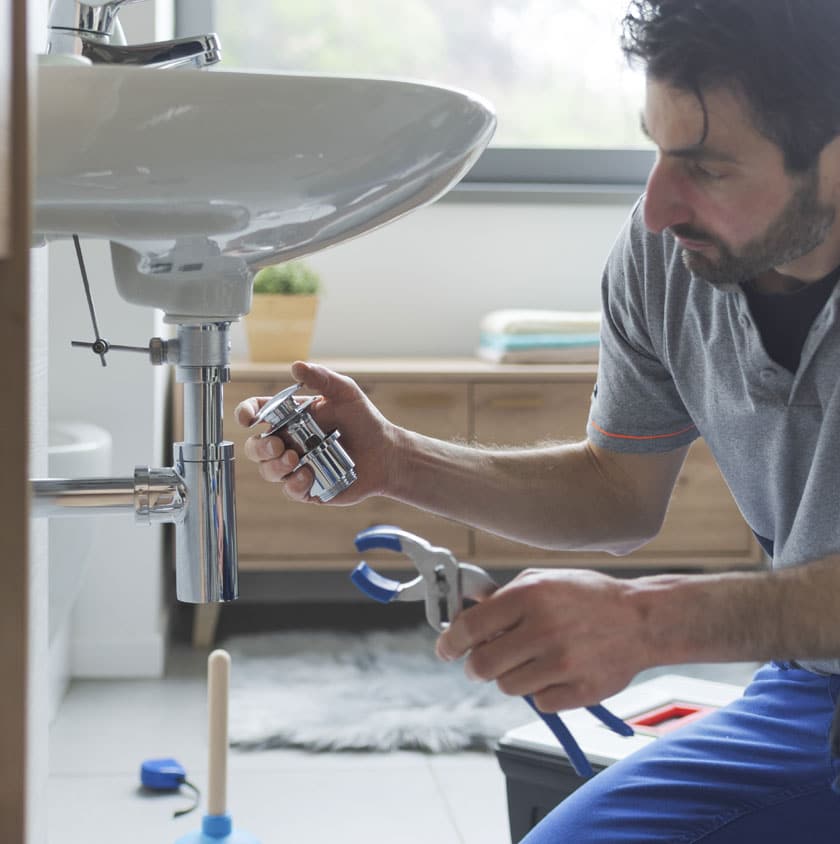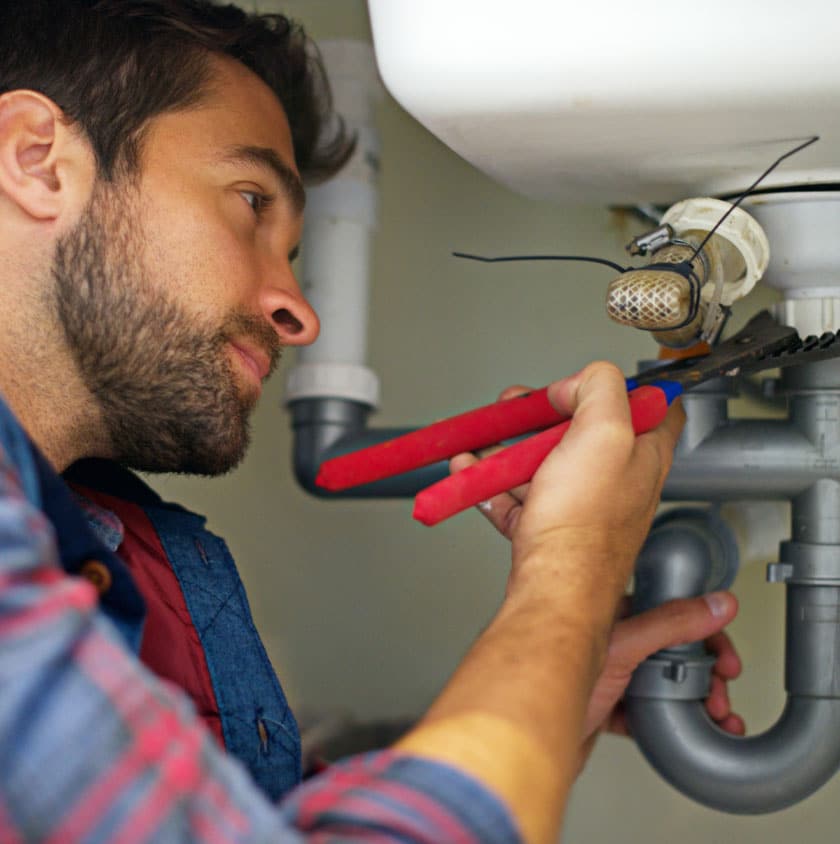
Plumbers Insurance
Compare Plumber Insurance Quotes
- Complete one short form
- Quickly compare quotes
- Find a great deal today!

Compare insurance quotes from UK’s leading plumber insurers including:
Why Compare Plumber Insurance Quotes At SimplyQuote.co.uk?
Comparing plumber insurance helps you find the right level of cover for the work you actually do — without paying for things you don’t need.
At SimplyQuote, we’ve partnered with Quotezone to bring you quotes from a panel of trusted UK tradesperson insurers. Instead of contacting multiple providers or repeating the same details over and over, you’ll see tailored policies side by side — including cover levels, pricing, and extras.
Whether you’re a self-employed plumber or manage a small team, the platform filters results based on your trade, business type, and risk profile. That means faster quotes and policies that make sense for how and where you work.
It’s a simple way to take control of your insurance — with no guesswork, no pushy calls, and no wasted time.
What Do I Need to Get a Quote?
To get a plumber insurance quote, you’ll need to share some basic details about your trade, your business setup, and the type of cover you’re after.
It usually takes less than five minutes. You’ll be asked for:
- The type of plumbing work you carry out — e.g. domestic, commercial, emergency call-outs, heating and gas
- Whether you’re self-employed or run a company
- Your business postcode and trading name (if applicable)
- Annual turnover and number of employees (if any)
- The level of public liability cover you want — commonly £1M, £2M, £5M or £10M
- Whether you need extras like tool cover, employer’s liability, or personal accident cover
- Any past claims, ongoing legal issues, or previous insurance refusals
This information helps insurers build an accurate quote that reflects your actual risk profile. A one-person plumbing business doing home repairs has very different needs to a small firm fitting boilers in commercial properties.
The more accurate your details, the more reliable your quote will be. And if you’re unsure about any of the options, the quote form will guide you step by step — no jargon, no pressure.
Why Do I Need Plumber Insurance Cover?
Plumber insurance protects you financially if something goes wrong — like causing a leak, damaging a customer’s property, or facing a legal claim.
It’s not just about cover — it’s about keeping your business running if the worst happens.
Every plumbing job carries risk. A burst pipe could flood a client’s kitchen. A customer might trip over your equipment. You might be accused of faulty workmanship. Even a simple tool theft could stop you working for days — and cost hundreds to put right.
Public liability insurance is often the starting point, but many plumbers add tool cover and personal accident protection. If you have staff, even just one apprentice, employer’s liability is a legal requirement. Larger contracts may also require you to show proof of insurance before you can begin work.
Insurance doesn’t just protect your income — it also gives your clients peace of mind. It shows you’re a professional who takes responsibility seriously, which can give you an edge when quoting for work.

What Insurance Do Self-Employed Plumbers Need?
Most self-employed plumbers need at least public liability insurance, but many also add tool cover, personal accident insurance, and sometimes professional indemnity.
The right mix depends on the type of work you do, where you do it, and whether anyone else helps you.
If you work alone, your biggest risk is often accidental damage or injury claims. Something as simple as a leak during a repair job or a customer tripping over your tools can trigger legal action — and you’d be personally liable without insurance.
At minimum, most sole traders choose:
- Public liability insurance — covers claims for injury or property damage caused by your work
- Tool cover — to replace stolen or damaged equipment
- Personal accident cover — pays out if you’re injured and can’t work
- Professional indemnity (optional) — useful if you design systems, sign off installations, or give technical advice
If you ever hire casual help, even temporarily, you may also need employer’s liability — legally required in many cases. And don’t assume you’re covered under a contractor’s policy unless it’s in writing.
Insurance isn’t just for large firms. It’s about protecting your income, reputation, and ability to keep working — especially when you’re the business.
Does Plumber Insurance Cover Subcontractors Or Apprentices?
Subcontractors and apprentices aren’t always covered by default — most insurers require you to declare them, and they may only be covered if certain conditions are met.
Getting this wrong could leave you uninsured when it matters most.
Let’s break it down:
Apprentices
If you hire an apprentice, even part-time or unpaid, you’re legally required to have employer’s liability insurance. Most policies will cover apprentices, but you must declare them — and the insurer may ask about supervision, training, and the nature of their work.
Subcontractors
Whether subcontractors are covered depends on how they work with you. Insurers often distinguish between two types:
- Labour-only subcontractors — work under your direction, use your tools, and follow your hours. These are usually treated like employees and need to be covered under your policy.
- Bona fide subcontractors — work independently, use their own tools, set their own schedule, and carry their own insurance. In this case, your insurer may not cover them — but you could still be held responsible if they’re uninsured.
Before you hire anyone, check your policy wording or ask your insurer. If they’re not declared correctly, your cover could be void — even if the issue wasn’t deliberate.
What Does Plumber Insurance Cover Include?
Plumber insurance typically includes public liability, tool cover, employer’s liability (if you have staff), and often personal accident or legal expenses cover.
Policies can be tailored depending on your trade setup and the risks you face. Here’s what’s usually included:
- Public liability insurance – This covers you if your work causes injury or property damage to a third party. It’s often the foundation of any plumber’s policy, and a requirement for many clients and job sites.
- Tools and equipment cover – Replaces or repairs stolen or damaged tools. Whether it’s power tools or specialist kit in your van, this cover is essential for keeping you working.
- Employer’s liability insurance – If you hire anyone, even an apprentice, you’re legally required to have this. It covers injury or illness claims from employees due to work-related issues.
- Personal accident cover – Pays out if you’re seriously injured and can’t work. Especially useful for sole traders or small teams where downtime affects income.
- Legal expenses cover – May be included or added as an extra. Helps with disputes, claims defence, or contract issues.
- Contract works or ‘all risks’ cover – Sometimes offered to plumbers working on new builds or major installations. It protects materials and work-in-progress on site.
Cover options vary by insurer, and not every plumber will need every feature. A sole trader doing small repairs won’t need the same protection as a business installing central heating systems across multiple properties. That’s why comparison matters — so you only pay for what’s relevant.

What’s Not Included?
Plumber insurance can cover a lot — but it doesn’t cover everything.
Like any policy, there are exclusions that limit what you can claim for. Understanding these gaps helps you avoid surprises later.
Common exclusions include:
- Wear and tear – Gradual damage to tools, equipment, or systems you install won’t be covered. Insurance is designed for sudden and unexpected incidents.
- Unattended tools – If your tools are left in an unlocked van or unsecured site overnight, theft claims might be denied — even with tool cover.
- Subcontractors not declared – If you use subcontractors but don’t inform your insurer or check their insurance, your own cover may be void.
- Work at extreme heights or in restricted zones – Jobs involving scaffolding, confined spaces, or risky environments often require additional cover.
- Faulty workmanship – If a client accuses you of poor work, most standard policies won’t cover the cost to redo the job — unless you’ve added professional indemnity.
- Illegal or reckless activity – Damage caused by breaking the law or working outside your policy terms (e.g. gas work without certification) is excluded.
Always check the wording of your policy documents. Two quotes might look similar, but their exclusions could be very different. If your work involves unusual conditions or higher risk, speak to the insurer before committing.
How Much Does Plumber Insurance Cost?
Plumber insurance can start from around £50 to £100 per year for basic public liability cover, but your total cost depends on your business size, risk level, and any extras you include.
There’s no one-size-fits-all price. A self-employed plumber doing small domestic jobs will usually pay less than a business fitting heating systems on construction sites with a team of employees.
Here’s what affects the price:
- Type of plumbing work – Higher-risk jobs (e.g. gas, commercial, or emergency repairs) usually attract higher premiums.
- Cover level – Policies offering £5 million public liability will cost more than those with £1 million, but some clients require it.
- Employees – Employer’s liability adds cost — but it’s legally required if you have staff.
- Tools and extras – Adding tool cover, personal accident protection, or contract works insurance pushes up the premium.
- Your claims history – Previous insurance claims, especially recent ones, may lead to higher quotes.
- Where you work – Plumbers based in higher-risk postcodes (e.g. urban areas with higher theft rates) might see increased costs.
If you’re only after basic protection, your quote might be at the lower end of the scale. But if you rely on your tools, work with subcontractors, or handle higher-value jobs, investing in the right cover is worth every penny when something goes wrong.
How Can I Save Money On Plumber Insurance?
You can save money on plumber insurance by choosing the right level of cover, keeping a clean claims record, securing your tools, and comparing quotes from multiple insurers.
But it’s not about going cheap — it’s about spending smart.
Here are some proven ways to lower your premium:
Tailor your cover
Don’t over-insure. If you only handle small domestic jobs, you might not need £5 million in public liability or full contract works protection.
Don’t over-insure your tools
Be accurate about what you use and what it’s worth. Insuring gear you don’t actually carry adds cost.
Increase your excess
Choosing a higher voluntary excess can reduce your premium. Just make sure it’s an amount you could actually afford in the event of a claim.
Secure your tools properly
Storing tools in a locked van with an alarm, or in a secure unit, reduces risk — and insurers take note.
Only pay for what you need
If you don’t employ staff or carry out design work, skip employer’s liability or professional indemnity.
Keep your record clean
Even small claims can increase your premium at renewal. Preventing incidents helps keep your risk profile attractive to insurers.
Review your policy annually
Your business evolves. Don’t let an outdated policy cost you more. Reassessing your needs — and comparing quotes again — can reveal better value.
The best savings often come from choosing cover that actually fits what you do — not from cutting corners. The goal is to pay for the risks that apply to your work, and nothing more.
How To Compare Plumber Insurance Quotes Online
Comparing plumber insurance quotes at simplyquote.co.uk takes just a few minutes — and you’ll only need to enter your details once.
We connect you with a panel of trusted UK insurers so you can compare options quickly, without chasing brokers or repeating yourself.
Here’s how it works:
- Tell us about your plumbing business
Choose your trade type, let us know whether you’re self-employed or run a company, and enter your postcode and turnover. - Select the cover you need
Decide which protections matter to you — public liability, tool cover, employer’s liability, or extras like personal accident. - Get instant quotes from multiple insurers
You’ll see real-time prices and policy options from insurers who specialise in trades like plumbing. - Compare features side by side
Check policy limits, included extras, and levels of cover — so you can weigh up cost versus protection at a glance. - Apply directly with the provider
Once you’ve found a policy that fits, you’ll go straight to the insurer’s website to finish the application — no sales calls, no pressure.
This process is powered by our partnership with Quotezone and built to save you time while making sure you don’t miss out on better value cover.
Frequently Asked Questions
Public liability isn’t legally required, but employer’s liability is mandatory if you hire staff — even apprentices. Many commercial clients also expect insurance before letting you start work.
Even occasional plumbing work carries risk. One leak or injury claim could cost thousands. Flexible policies are available for part-time or lower-risk plumbers.
Most policies start immediately once you’ve completed the quote and payment. Documents are usually sent by email within minutes.
Yes, many insurers offer monthly instalments. However, paying annually is often cheaper overall, so it’s worth comparing both options.
Only if you’re registered to do it — usually with Gas Safe certification. Be sure to declare this during the quote process.
You’ll need to inform your insurer. A shift in the type or scope of work — for example, taking on gas fitting or commercial contracts — could affect your cover.
Yes, but you may pay more. Some insurers specialise in higher-risk trades or applicants with a claim history, so it’s worth comparing policies.
Yes, in most cases — as long as the work is legal and declared. If you regularly work for landlords or agencies, make sure your policy reflects that.
Written by Chris Richards
Page last reviewed on 27th March 2025 by Chris Richards
